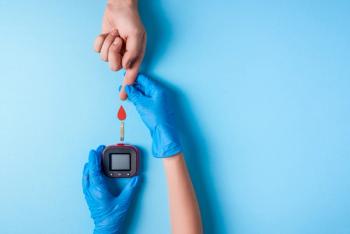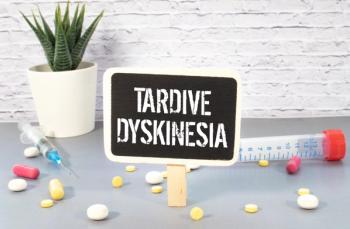
- Drug Topics December 2022
- Volume 166
- Issue 12
Technology Tools for Mental Health Screening
Online portals are accessible via tablet or computer and can streamline the mental health screening process.
Many health care providers use paper questionnaires to screen pediatric patients for developmental concerns, such as autism, attention-deficit/hyperactivity disorder (ADHD), depression and anxiety, and high-risk behaviors, as recommended by the American Academy of Pediatrics. However, there are multiple computer- and tablet-accessible portals that can facilitate screening and provide actionable information for both patients and providers.
CHADIS Online Portal
In 2001, 2 developmental pediatricians created the Child Health and Development Interactive System (CHADIS), a comprehensive web-based system for screening children for behavioral and developmental problems. The CHADIS online portal has received over $24 million in federal and foundation grants for research and development. To date, more than 5000 providers are using the CHADIS system, and it continues to grow in features and popularity.
The CHADIS assessment tool allows parents to fill out age-appropriate screening tools online, then evaluates these forms, performs scoring when indicated, and alerts providers of issues that need discussed with parents. The CHADIS system allows health care providers to identify parental concerns and behavior issues that would have gone unidentified in the past. A CHADIS subscription costs approximately $1500 per provider per year, with discounts available for volume licenses.
CHADIS incorporates hundreds of screening tools, such as the Modified Checklist for Autism in Toddlers, Revised; Ages and Stages Questionnaires; Vanderbilt Assessment Scales; Patient Health Questionnaire for Adolescents; and Generalized Anxiety Disorder 7-item forms. CHADIS also provides a full library of resources for providers and parents to assist in management once a condition is diagnosed. The CHADIS reports can also be copied and pasted into your electronic health recordso the results of the screening are documented.
Mehealth for ADHD
A clinical study published in 2011 demonstrated that an internet portal could improve ADHD care.1 The study involved 49 pediatric health care providers at 8 practices and demonstrated significantly higher rates of completed ADHD evaluations when the portal was used to expedite diagnosis.
The portal was later commercialized as mehealth for ADHD. Parents seeking an evaluation for their child are enrolled in the online portal, where they can fill out both an initial medical history form and Vanderbilt screening forms. Parents can also invite their child’s teachers to the portal to fill out Vanderbilt forms. Once completed, all forms are scored and are available in the patient’s mehealth for ADHD record. A report is generated with detailed interpretation, which facilitates the discussion of the diagnosis. If a child begins medication therapy, questionnaires are automatically sent to parents and teachers at preselected intervals (eg, usually every 1 to 3 months) to help monitor the response to treatment and alert providers of any symptoms suggesting medication adverse effects. The report can be shared with parents via the portal or printed. Mehealth for ADHD is a free service, sponsored by a National Institutes of Health grant.
The Best-Kept Secret in Mental Health Screening
David Kraus, PhD, has been working diligently for the past 30 years developing a universal screening tool for children, adolescents, and adults. The Treatment Outcome Package (TOP) consists of 58 questions for adults and adolescents and 48 questions for children, and it takes less than 10 minutes to complete. The TOP can be administered online or via a paper form, with results available immediately when submitted electronically and within 15 minutes when submitted by fax.
The TOP screens adolescents and children for suicidal ideation, violent behavior, psychosis, depression, ADHD, conduct problems, school and work problems, substance abuse, and others. It also screens for eating disorders and anxiety in children. It is available via WellnessCheck.net, which facilitates the process of enrolling patients and parents, expediting completion of questionnaires. Questionnaires can be completed via tablet at the time of the patient encounter or via an email or a short message service text, which can be sent to the patient or parent to be completed on their own smart device. An alert is issued to the provider when a questionnaire is completed, and regular messages are sent to the provider if a requested questionnaire is not filled out. The service uses a prescription model and is available for less than $100 per provider per month.
The TOP has been validated in many clinical studies, showing that it is as effective as—if not more effective than—standard screening tools.2,3 Repeated testing during counseling shows how well the patient has responded to therapy and identifies areas that need more work. It is now being used by more than 30,000 therapists, and over 1 million screens have been performed to date.
Kraus has used the TOP to develop a system that has identified therapists who are particularly good with certain problems (eg, excellent in treating anxiety but poor in treating substance abuse)to find the best therapist fora particular patient. Kraus’ most recent study, published in 2021, indicates that better outcomes can be achieved in a shorter period when patients are matched with the most appropriate therapists.4 In fact, better-performing therapists are being compensated at higher rates from some insurance companies because the system provides an objective measure of results.
This article originally appeared in Drug Topics®’s sister publication, Contemporary Pediatrics®.
References
1. Epstein JN, Langberg JM, Lichtenstein PK, Kolb R, Altaye M, Simon JO. Use of an internet portal to improve community-based pediatric ADHD care: a cluster randomized trial. Pediatrics. 2011;128(5):e1201-1208. doi:10.1542/peds.2011-0872
2. Baxter EE, Alexander PC, Kraus DR, Bentley JH, Boswell JF, Castonguay LG. Concurrent validation of the treatment outcome package (TOP) for children and adolescents. J Child Fam Stud.2016;25:2415-2422. doi:10.1007/s10826-016-0419-4
3. Youn SJ,Kraus DR, Castonguay LG. The treatment outcome package: facilitating practice and clinically relevant research. Psychotherapy (Chic).2012;49(2):115-122. doi:10.1037/a0027932
4. Constantino MJ, Boswell JF, Coyne AE, Swales TP, Kraus DR. Effect of matching therapists to patients vs assignment as usual on adult psychotherapy outcomes: arandomized clinical trial. JAMA Psychiatry.2021;78(9):960-969. doi:10.1001/jamapsychiatry.2021.1221
Articles in this issue
about 3 years ago
2022 Top News from Drug Topicsabout 3 years ago
New Approaches in Psoriasis and Psoriatic Arthritis Treatmentabout 3 years ago
Treating Skin Cancers in the Immunotherapy Eraabout 3 years ago
What’s New in Acne and Rosacea?about 3 years ago
A Study of Immune Checkpoint Inhibitors and Complication Ratesabout 3 years ago
Evaluating Chronic Itch and Quality of Lifeabout 3 years ago
Biosimilar Uptake Increases After Changes to EHRabout 3 years ago
Mental Health Telemedicine Barriers Spur Call for Reformabout 3 years ago
How Drug Shortages Are Prevented by the FDANewsletter
Pharmacy practice is always changing. Stay ahead of the curve with the Drug Topics newsletter and get the latest drug information, industry trends, and patient care tips.























